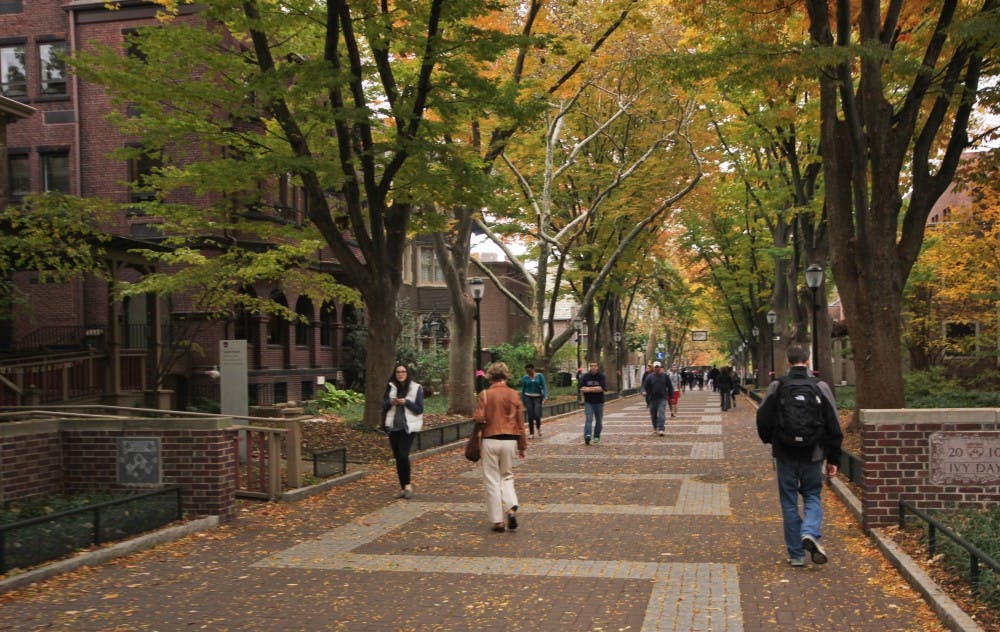
As Philadelphia prepares to decriminalize possession and consumption of marijuana next week, students and staff at local universities say the decision won’t change their school’s marijuana policies.
Penn will continue to prohibit marijuana use on campus as its use violates federal law, Interim Director of the Office of Student Conduct Julie Nettleton said in September. At Temple and St. Joseph’s universities, the policies towards marijuana will also remain the same as before the legislation went into effect.
“Temple University students will have the same level of responsibility for their behavior under the Student Conduct Code, including the existing minimum mandatory sanctions if students are found responsible for alcohol and drug violations,” a Temple spokesperson said in a statement. At Temple, the first time a student is found guilty of marijuana possession, he will face a fine, his parents will be notified if he is under 21 years old, he will be required to enroll in a Temple treatment program and he will be placed on probation.
Spokespeople from other Philadelphia colleges, namely Drexel, La Salle and St. Joseph’s universities, did not respond to multiple requests for comment about whether their schools’ policies will change as a result of decriminalization. But considering other universities’ stances, it’s not likely that either Drexel or La Salle will change its policies in light of marijuana decriminalization.
Drexel currently takes an aggressive approach towards students who are found to have used drugs. First time violators of their policies can face suspension, required counseling or a ban from university housing, according to the university’s policy online.
Two Drexel students interviewed for this story spoke of a zero-tolerance drug policy at their university, where students can be quickly suspended or kicked out of their housing.
“Drexel can kick you out of housing or put you on probation really easily,” said a Drexel junior who wished to remain anonymous. The junior said his roommate was put on probation after drugs were found in his possession.
Another Drexel junior recalled that during her freshman year, people that she knew were put on probation or faced expulsion after police found marijuana in their bags. Her friends who were caught were suspended from Drexel for a year, she said.
A Temple sophomore who wished to remain anonymous agreed that the culture at her university would essentially remain the same after decriminalization. “At Temple, getting caught isn’t the hugest deal. If you get caught three times, there’s more of a consequence,” she said.
The major issue the sophomore talked about is the fine Temple imposes on students who are caught. First time offenders are fined $250. Second time offenders are charged $500. After the third incident, the student can be expelled or suspended from the university.
“Temple is essentially a dry campus — if you’re 21 and bring alcohol into a dorm, you can get in trouble for that. They check bags on certain days or if you look suspicious,” she said. However, she agreed with the Drexel students that this decriminalization will probably not change anything.
At St. Joe’s, current marijuana violations are treated as both medical and disciplinary problems — and, according to a recent article in St. Joe’s student newspaper The Hawk, the university’s policies will most likely stay the same. Under the school’s current policies, students found in possession of marijuana can face sanctions, although those can vary by case. However, if overdosed students in need of help report marijuana use, the university will not punish the students, although they may be required to meet with a university official about the incident.
At La Salle, the university reserves the right to impose a number of sanctions, including issuing a formal warning and suspending housing contracts and the ability to participate in university activities. It also requires students to participate in a complete substance abuse assessment by qualified university staff and to comply with the recommendations from that assessment. More serious consequences include suspension and expulsion.
The Daily Pennsylvanian is an independent, student-run newspaper. Please consider making a donation to support the coverage that shapes the University. Your generosity ensures a future of strong journalism at Penn.
DonatePlease note All comments are eligible for publication in The Daily Pennsylvanian.







